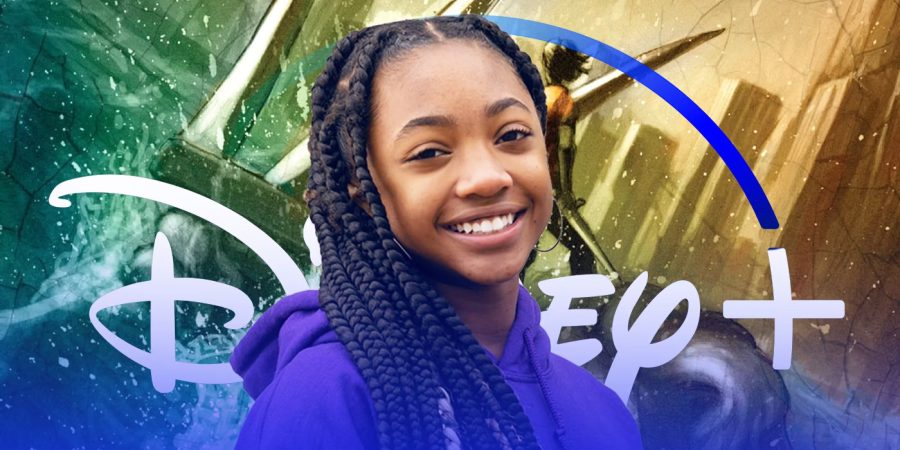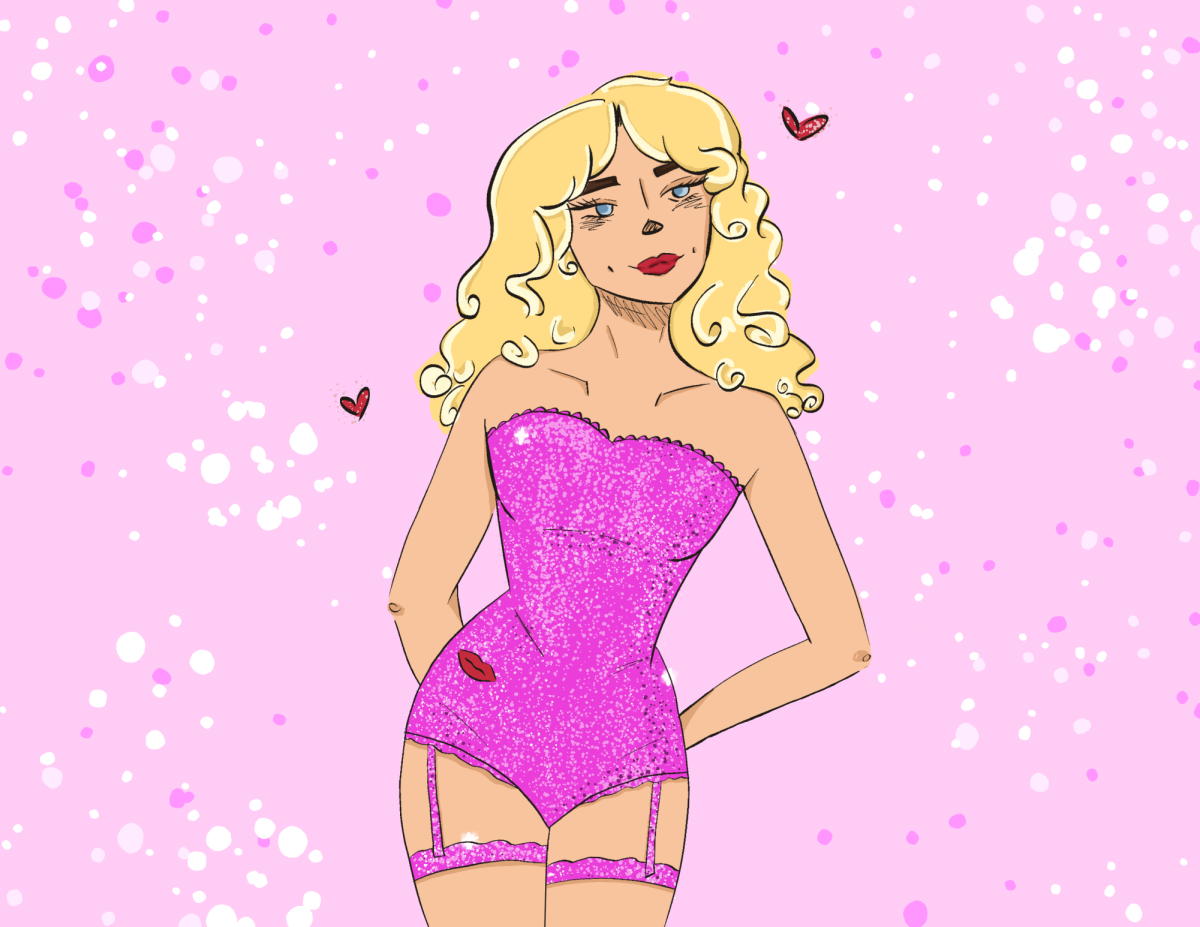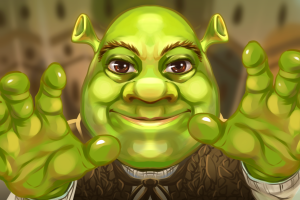Annabeth Chase is Black
Oct 23, 2022
When recasting classic roles with POC actors leads to backlash, what happens then?
I have been a fan of Percy Jackson since I was a little kid. So, when the new series on Disney+ was announced I was quite excited. Not only was Rick Riordan thoroughly involved in the production, but we were going to be getting a whole new cast to embody the characters I had fallen in love with growing up. There is just something special about watching a cast of characters grow up alongside you. Percy Jackson’s story starts at 12 years old, which means that readers and now viewers get to grow up with him once again. Rick Riordan even worked closely with Disney for about a year through the extensive process to find the best actors for our main trio.
The casting announcements came in waves. We were first introduced to Walker Scobell as our Percy Jackson. Audiences awaited the announcement of Grover and Annabeth with bated breath. Aryan Simhadri and Leah Jefferies were announced as Grover and Annabeth Chase, respectively. These two casting decisions came with far more animosity than Percy’s casting, due to the fact that these actors aren’t white. There were complaints that Leah Jefferies wasn’t blonde and Annabeth Chase had to be blonde due to the way the character subverts the “dumb blonde” stereotype to be taken seriously throughout the series. Her characterization as an underdog is something many readers relate to and is an integral part of her character. Jefferies wasn’t how readers pictured the character, which meant that she was automatically wrong for the role. However, this couldn’t be further from the truth. Annabeth Chase is a strong, brilliant powerhouse of a character and I have no doubt that Leah Jefferies will do a wonderful job. Being underestimated is no doubt an important piece of Annabeth’s character. As the controversy has proved, being underestimated is something that Leah Jefferies has no issue relating with. I imagine this blowback will only serve to fuel her performance.
Rick Riordan took it upon himself to write a special blog post reiterating that Jefferies was handpicked to play the role and happens to be perfect for it. He goes into detail and discusses the attributes that Jefferies displays that make her perfect for the role. Additionally, he highlights that any dislike for Jefferies stems from racism. Leah Jefferies is a 12-year-old actress. Audiences haven’t even seen her performance yet. It is ridiculous that her abilities are already being brought into question when there is nothing to go off of. While it is disappointing that Riordan had to make the post in the first place, it is wonderful to see an author that is capable of elevating and standing up for his actors. It is exciting to see how much faith he has in them. Given that he wrote the story, he has a very thorough understanding of the characters. His endorsement of the cast has only increased my eagerness for the final product.
This event prompted me to think about other instances where beloved characters or preexisting characters were recast in remakes with actors of color. It is beginning to become a common occurrence where a remake is announced, a character is cast with a POC, and we are met with waves of backlash. It’s incredibly disappointing that despite how far we’ve claimed to have evolved past racism, talented minority actors are still dealing with this nonsense. Another example of this is Halle Bailey’s casting as Ariel in “The Little Mermaid.” The backlash with “The Little Mermaid” has been almost constant since the casting announcement has been released. There are tons of complaints that Bailey cannot pull off the role of Ariel. Yet, none of the criticisms hold any weight. There are claims that Ariel is Danish and should be played by a white actress. This is primarily due to the fact that the writer of Ariel hails from Denmark. I would argue that Danes can look any way they would like. Additionally, Ariel is a member of a fictional species that lives underwater. It seems pretty ridiculous to get caught up on what kind of race a fish should be. It’s genuinely frustrating to see this time and time again. There are people who truly believe that what a person looks like can affect their acting ability, their singing ability, or their ability to be considered a human being. No one can deny that Bailey is talented. Disney cast a talented singer for a musical film and she even dyed her hair red for the role. What more can we ask for? Having a Black Disney princess doesn’t affect the well-being of any of the naysayers. However, it makes a huge difference for audiences who can resonate with the character, which makes this whole situation worse.
The teaser trailer for “The Little Mermaid” came out just a few weeks ago, and already there are tons of kids who are so excited for this movie. I’ve seen countless videos of little Black girls reacting to this trailer, getting absolutely thrilled that they look like their favorite Disney princess. Additionally, little kids of other races have no issue with the casting. Ariel is still their favorite princess. They are just as excited to see the movie. There are no negative consequences and only positive benefits for kids growing up to see this on the big screen. Obviously, I’m not under the notion that writing this article is going to change the minds of racists. However, I think that it is worth noting that this does matter. As of right now, there is one Black Disney princess. Tiana is Black because her being Black has a cultural significance to her story and the character. I’m excited to see this recreation of “The Little Mermaid.” I think that the rest of the cast is phenomenal and Bailey has the perfect ambiance to play a princess.
I wanted to focus on these two examples because they are incredibly topical as we are in the midst of these projects and their backlash. But, they also have the very real ability to affect little girls growing up right now, giving young girls another Disney princess to look up to or a new strong protagonist who looks like them. However, this cycle of recasting parts — and racist backlash isn’t new. Zendaya had to deal with ridiculous complaints due to her part as MJ in the latest Spider-Man trilogy. With hindsight, audiences can recognize that Zendaya took the character and made it her own. Tom Holland’s iteration of Spider-Man was the third in a variety of different interpretations. Each installation made the story its own, so why was Zendaya the only one who got slack for it? Even Broadway isn’t exempt from this kind of backlash. Noma Dumezweni faced anger when she premiered as Hermione in “The Cursed Child.”
It is incredibly frustrating, for the actors, the audiences, and for the project as a whole. At the end of the day, race does not negatively affect an actor’s ability to give a performance. This unfortunate trend accomplishes nothing. These characters stem from source material that have different interpretations. Percy Jackson is a book and readers were always left up to their own interpretations of the character. Annabeth’s actions in the story matter much more than how she looks. No one was appalled that Walker Scobell is blonde, despite Percy being originally written as having dark hair. “The Little Mermaid” is a fairytale, a story that was often told orally before someone decided to write it down, whi ch means that what she looks like doesn’t really matter. Additionally, she lives in the sea. There are no rules for the lineage of sea creatures. How Ariel looks has no bearing on her story. The same goes for MJ, a story from comics that has held multiple interpretations. Even Hermione was never explicitly given a race in the books. Growing up, I always relished that Hermione’s defining physical feature (her bushy hair) was something I could relate to, and I felt happy to see a POC Hermione in the West End cast. This disgust or contempt for these castings comes from a place of racism. Whether it is consciously or subconsciously, it is still racism. This comes from a fear that these decisions will change the character or the story. In reality, these decisions only open the world to larger audiences. This allows for more children to become enamored with the stories and fall in love just like generations prior got to. It is a good thing that we are reenvisioning beloved characters in different ways.
I think that when we are looking at remakes and recastings, the most important thing is that the character doesn’t get butchered. I can understand faithful audiences being frustrated by a recasting that takes something away from the original character written or changes aspects of the character in ways that make a difference. However, with these examples that we are talking about, no such action is taken. Annabeth is still considered an underdog and, if anything, her race reinforces the nature of her character due to the obstacles that are a result of her being a Black woman. Ariel is still kind, sweet, and a little naive. Bailey has proven that she can play these airy characters. She has the ability to play a princess. Her race doesn’t affect any of that. If there was any backlash outside of race I could understand. If these hecklers held issue with the portrayal of the character, if that was changed in some way, this anger could be justified. But, this isn’t happening. These complaints are focused on race. Plainly put, that is racism. The truth is the integral parts of these characters are the same as their source material. We are simply seeing them reimagined in new ways.
Now, I want to end this on a very specific note. I am very excited to see “Percy Jackson” and “The Little Mermaid.” Getting to see Annabeth Chase, a character I’ve related to all throughout my childhood, depicted as not white is something that warms my heart. However, it is worth noting that these are both remakes of previous movies. The film climate we are in right now seems to love making sequels and remakes of prior shows. As long as we are in the space where that continues, remaking beloved characters with more diversity is a great way to include people of color in the conversation. However, this doesn’t take away from the fact that actors and audiences of color deserve their own stories too. We shouldn’t have to rely on a new iteration of an old character to feel represented. It is important to include people of color in the conversation and in the media. It is important to tell stories that aren’t traumatic, inauthentic, or stereotypical. This remains to be a fierce battle. It’s a battle I believe will always be worth fighting. For now, I will continue to be excited to see characters I love depicted in new ways, but it is not something I will be settling for.
Image courtesy of Collider

















